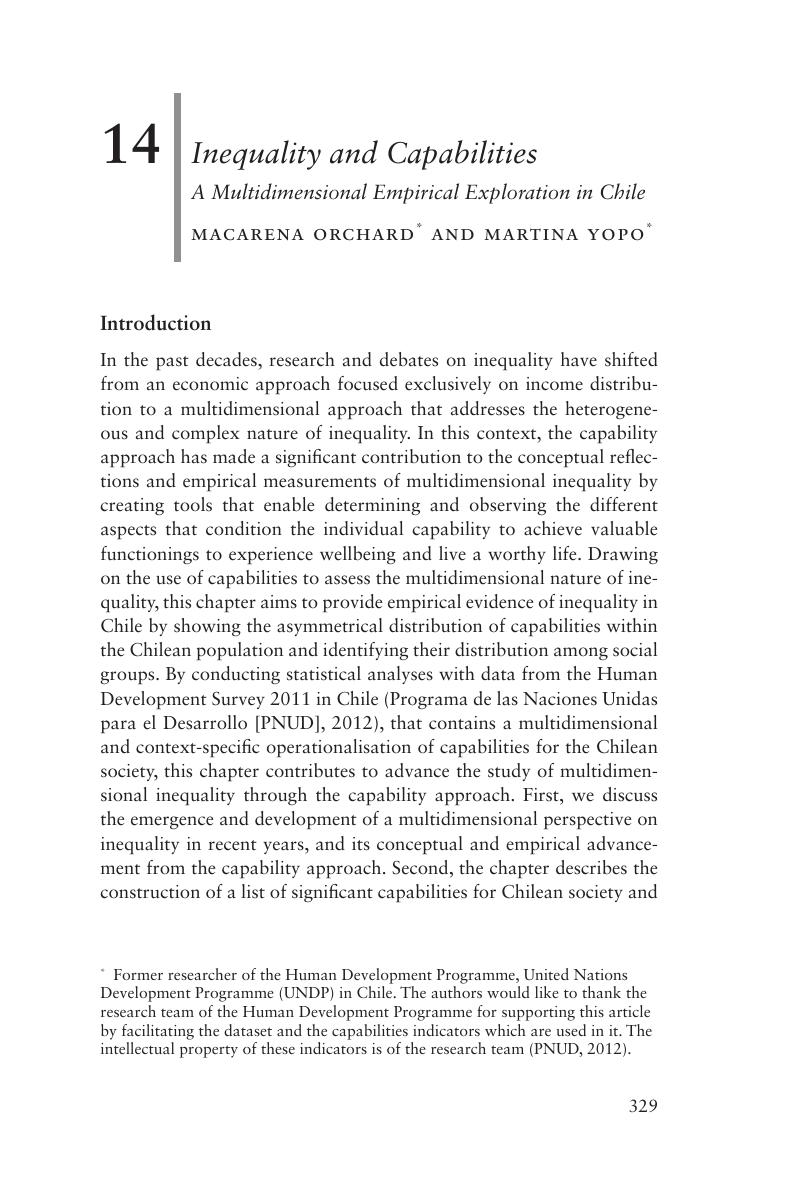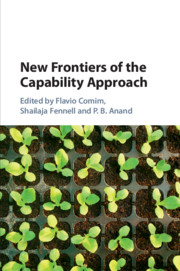Book contents
- New Frontiers of the Capability Approach
- New Frontiers of the Capability Approach
- Copyright page
- Contents
- Figures
- Tables
- Contributors
- Preface and Acknowledgements
- 1 Introduction
- 2 On Sen on the Capability of Capabilities
- Part I The Need for New Foundations
- Part II The Operationalisation Frontier
- Part III The Application Frontier
- 12 Human Development in India
- 13 Sustainable Human Development Measurement Issues
- 14 Inequality and Capabilities
- 15 Living Wages in International Supply Chains and the Capability Approach
- 16 For a Happy Human Development
- 17 Capability of Capabilities and Aspirations of the Middle Classes in India
- 18 The Value of Individual and Community Social Resources
- Part IV The Housing and Urban Frontier
- Part V The Education Frontier
- Author Index
- Subject Index
- References
14 - Inequality and Capabilities
A Multidimensional Empirical Exploration in Chile
from Part III - The Application Frontier
Published online by Cambridge University Press: 08 October 2018
- New Frontiers of the Capability Approach
- New Frontiers of the Capability Approach
- Copyright page
- Contents
- Figures
- Tables
- Contributors
- Preface and Acknowledgements
- 1 Introduction
- 2 On Sen on the Capability of Capabilities
- Part I The Need for New Foundations
- Part II The Operationalisation Frontier
- Part III The Application Frontier
- 12 Human Development in India
- 13 Sustainable Human Development Measurement Issues
- 14 Inequality and Capabilities
- 15 Living Wages in International Supply Chains and the Capability Approach
- 16 For a Happy Human Development
- 17 Capability of Capabilities and Aspirations of the Middle Classes in India
- 18 The Value of Individual and Community Social Resources
- Part IV The Housing and Urban Frontier
- Part V The Education Frontier
- Author Index
- Subject Index
- References
Summary

- Type
- Chapter
- Information
- New Frontiers of the Capability Approach , pp. 329 - 350Publisher: Cambridge University PressPrint publication year: 2018
References
- 1
- Cited by



